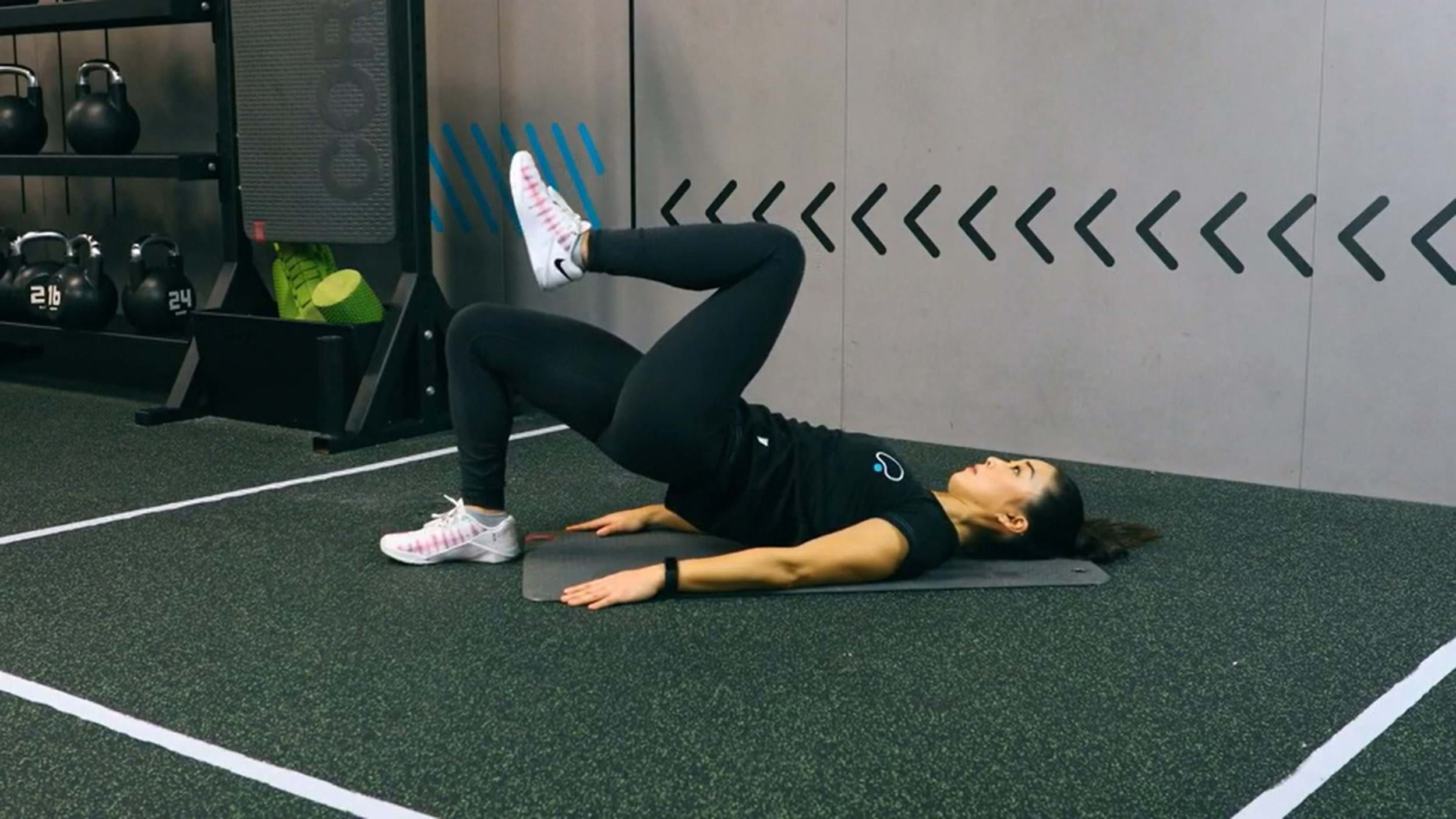Single Leg Glute Bridges
What Is A Single Leg Glute Bridge?

Jump Straight To Single Leg Glute Bridge Instructions
The single leg glute bridge is a good exercise that isolates the glutes, strengthens the posterior chain, quads, and core, and improves balance, coordination, and stability. Strengthening the glutes and posterior chain can help to stabilise the pelvis, improve posture, reduce back pain, and minimise risk of injury as a result.
This is a good progression from standard glute bridges as it increases the load per working leg, recruits more stabilising muscles, and adds further challenge to the core, particularly the obliques, which must work hard to prevent the torso from twisting. Unilateral exercises are also great for improving muscular imbalances between the two sides which can lower the risk of injury and improve overall strength.
Single leg glute bridges can be performed without equipment in small spaces, making it ideal for those working out at home or while traveling. In the gym, this exercise works well as part of a circuit, as a warm up for heavy lower body sessions, and as a high rep exercise to build endurance. Want to make this more challenging? Do single leg variations of dumbbell or barbell glute bridges!
Check out our other glute bridge variations: glute bridges, dumbbell glute bridges, barbell glute bridges
Commonly Asked Questions On Single Leg Glute Bridges
The single leg glute bridge is a hip extension exercise that primarily works the glutes. The hamstrings, quads, spinae erector, and core are also worked in this exercise.
Single leg glute bridges are good for building strength and stability in the lower body, particularly the glutes, hamstrings, and lower back. While it’s unlikely to build significant muscle mass due to lack of load, it allows strength, stability, and endurance to be built without a need for equipment or space. It’s also useful to warm up the lower body before a workout, fatigue the muscles at the end of a workout, or used as part of a circuit.
The single leg glute bridge can be performed without any weight, and many people find this challenging enough as it requires the smaller stabilising muscles and core to work hard to keep the body stable. Once you’re able to perform 12-15+ reps with ease, you can load the single leg glute bridge by holding a weight just below the hip crease.
Single Leg Glute Bridges Tips
A common mistake made during single leg glute bridges is not keeping the hips level, which occurs when the core is not being used to stabilise the torso and hips, and can place stress on the lower back. Engage the core by pulling your belly button into the spine and focus on keeping both hips at the same height throughout the full exercise.
How To Do A Single Leg Glute Bridges
Lie flat on your back with arms straight by your side, knees bent hip-width apart, and feet flat on the floor.
Lift your left foot off the floor and extend the leg so that both thighs are parallel with each other. Keep this symmetry throughout the exercise. If it’s too challenging, you can bend the non-working leg and keep it at a 90 degree angle.
Engage your core and tuck your pelvis under to create a flat back, then push your hips up towards the ceiling by squeezing your glutes, stopping when your shoulders, hips and knees are in a straight line.
Pause before slowly lowering your hips back to the starting position.
If you’re not sure if any of the above exercises are suitable for you, please consult your doctor before you start it. Need guidance on how to perform the exercise? Ask a personal trainer at your gym.